Arthropods (insects, etc.)
These are invertebrate animals, the body of which is surrounded by an exoskeleton consisting of segments. The term is derived from the Greek " ἄρθρον (segment) + πόδας (leg)". Phylum Arthropoda includes Classes such as insects (Incecta), spiders (Arachnida), centipedes (Chilipoda), scorpions (Scorpionida) mites (Acarina), etc.
80% of the Animal Kingdom consists of arthropods that occurred millions of years before humans and co-evolved with them, adapting to the changes that mankind introduced into the environment. The characterization of arthropods as pests concerns the effect they have on health and the economy which varies by culture, aesthetics and personal experiences. The effect of arthropods may be immediate and/or as a result of their activities. Despite the general perception, most arthropods are beneficial and necessary as part of the ecosystem. Ultimately, though it seems we cannot live with them we could not survive without them.
Dangers to public health
Arthropods are responsible for the transmission of microbes that cause disease in humans, of which several are serious, as well as for causing allergies.
These happen in ways which include:
- human contact with arthropod bodies, their moults, droppings, bodily fluids as well as water, food and surfaces contaminated by them.
- sucking, biting and piercing of human skin.
- stinging and biting of human skin (associated with the entrance of toxic substances into the human body which can potentially cause allergies, sometimes with deadly results).
- breathing dust that comes from moults (associated with allergies and asthma).
The pathogens transmitted via arthropods can cause human diseases such as: malaria, salmonellosis, bubonic plague, Lyme’s disease, typhus fever, tularemia, encephalitis, viral diseases, etc. The aforementioned diseases are merely a small example of a far more extensive list and generally refer to transmission of microbes (protozoa, fungi, bacteria) as well as parasites such as nematode worms etc. Arthropods, are also responsible for the transmission of diseases in domestic animals, for example with leishmaniasis (kala-azar).
Food Damage
Arthropods can damage but can also destroy food and forage at all stages of production, processing, storage, distribution, preparation and trading.
The effect of arthropods in food involves:
- deterioration due to feeding.
- contamination with their organic residues and their excretions.
- transmission of microbes that are not pathogenic (e.g. fungal decomposers of organic matter etc.) but further deplete food.
- especially in the case of arthropods that transmit pathogenic microbes (e.g. flies, cockroaches, etc) their presence implies a threat to public health and it is unacceptable where there is food. On the contrary, if their presence and their contact with food is determined, it may be necessary to discard the latter.
The inability of determination of the exact location and path followed by arthropods in a place where there is exposed food, may sometimes lead to the rejection of the whole portion or batch, regardless of whether it is truly infected.
Moreover, insects and acari (in various stages of their development) are particularly harmful to crops. They undermine the primary production since they are able to damage all plant parts (such as roots, crops, bark of trees, trunks, stems, leaves, etc.).
Structural and property damage
Arthropods are able to attack any organic material such as: wood, cloth, leather, paper, etc. The damage that they can cause can even be total (ex.: the destruction of wooden buildings from termites and/or other woodworm insects).
Risk to reputation
Infestation from arthropods can damage the reputation of any business. Signs of arthropod activity or existence may cause problems with customers and/or losing them, who subsequently are very likely to communicate information and cause a further decline in clientele. The presence of arthropods often creates problems, not only in relation to customers but also with the employees.
Legislation
The public health legislation relating to arthropods covering health inspections must always be adhered to. In cases of offence the imposition of sanctions is provided. In extreme cases, the suspension of the operating permit is enforced and business owners can be prosecuted.
Control
Defon controls arthropods according to the company’s Integrated Pest Management (IPM) system. This refers to the prevention of their establishment and/or their suppressive control, with physical (mechanical), chemical and biological methods. These methods can be used individually or in combination. For additional information see Defon’s environmentally friendly IPM methodology section.
The transmission of pathogenic microbes by arthropods often requires disinfection to be carried out after pest control. More details on the subject are listed in the Disinfection section.


